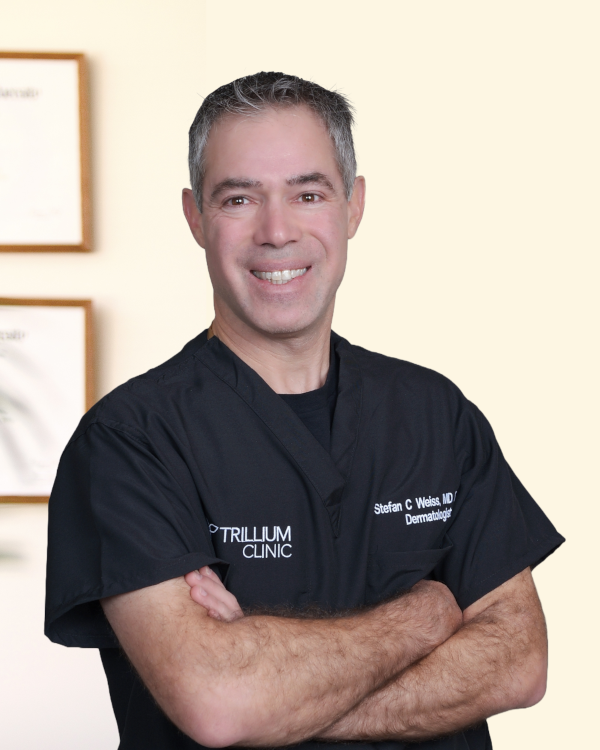In the evolving landscape of healthcare, personalized treatment plans have become increasingly important. One of the key innovations in this domain is compounded medications. Compounding is the art and science of preparing customized medications for patients, addressing unique health needs that commercially available drugs cannot meet. With drug shortages, and high costs of branded therapies, this is even more important in the areas of wellness and weight loss. This blog explores the advantages of compounded medications, their applications, and why they are a vital component of personalized healthcare.
What are Compounded Medications?
Compounded medications are tailor-made drugs created by a licensed pharmacist to meet the specific requirements of an individual patient. This process involves mixing, combining, or altering ingredients to develop a medication that is not commercially available. Compounding can cater to unique dosage forms, strengths, flavors, and ingredients, providing a solution for patients with particular health challenges.
The Benefits of Compounded Medications
1. Personalized Dosages
Standard medications come in predefined dosages, which may not suit every patient. Compounded medications allow healthcare providers to prescribe the exact dosage required for an individual’s specific health condition. These custom medications are particularly beneficial for pediatric patients, elderly patients, or those with chronic conditions who may need non-standard dosages.
2. Alternative Forms
For patients who have difficulty swallowing pills, compounded medications can be formulated into various forms such as liquids, creams, gels, or even lollipops. This flexibility ensures that patients adhere to their treatment plans more effectively, improving overall health outcomes.
3. Allergy-Friendly Solutions
Many commercially available medications contain allergens such as lactose, gluten, dyes, or preservatives. Compounded medications can be created without these ingredients, making them suitable for patients with allergies or sensitivities.
4. Discontinued Medications
Sometimes, pharmaceutical companies discontinue medications that are still necessary for certain patients. Compounding pharmacies can replicate these medications, ensuring that patients continue to receive the treatments they need without interruption.
5. Flavor Customization
For children or pets, the taste of medication can be a significant barrier to adherence. It is possible to flavor compounded medications to increase their palatability and reduce resistance when taking them.
Applications of Compounded Medications
Compounded medications are utilized in various medical fields, enhancing patient care and providing solutions where standard medications fall short. Here are some key applications:
1. Pediatrics
Children often require specific dosages that are not available in commercial medications. Compounded medications can be adjusted to provide the precise dosage required, often in a more palatable form such as flavored liquids or lollipops.
2. Dermatology
Skin conditions often require topical treatments that are not available in the right concentration or combination. Compounded creams, gels, and ointments can be tailored to treat specific dermatological issues, and used in cosmetic dermatology effectively.
3. Pain Management
Chronic pain sufferers may need medications in unique combinations or dosages. Compounded medications allow for the creation of personalized pain management solutions that can include a combination of analgesics, anti-inflammatories, and muscle relaxants in a single formulation.
Compounding Semaglutide: Customizing a Breakthrough Weight Loss Medication
Semaglutide, a glucagon-like peptide-1 (GLP-1) receptor agonist, has become a significant player in the management of type 2 diabetes and weight loss. Known for its efficacy in lowering blood glucose levels and promoting weight loss, semaglutide is marketed under brand names such as Ozempic and Wegovy. While commercially available semaglutide formulations have proven effective, there are situations where compounding semaglutide can provide additional benefits and address specific patient needs.
Understanding Semaglutide
Semaglutide works by mimicking the hormone GLP-1, which regulates blood sugar levels by stimulating insulin secretion, inhibiting glucagon release, and slowing gastric emptying. These mechanisms help improve glycemic control and promote weight loss, making semaglutide a valuable medication for patients with type 2 diabetes and those struggling with obesity.
Why Compound Semaglutide?
Compounding semaglutide involves creating a customized formulation to meet the unique requirements of individual patients. Commercially available semaglutide comes in fixed dosages, which may not be suitable for all patients. Some patients may require a dosage that is not available in the standard products. Compounding allows healthcare providers to prescribe the exact dosage needed to optimize therapeutic outcomes and minimize side effects.
Quality and Safety Considerations in Compounding Semaglutide
It is essential to guarantee the efficacy and security of compounded semaglutide.This involves adherence to stringent standards and regulations:
1. Regulatory Compliance
A compounding pharmacy must comply with guidelines set by the United States Pharmacopeia (USP), particularly USP 795 for non-sterile compounding and USP 797 for sterile compounding. These standards ensure that compounded medications are prepared in a controlled, sterile environment to prevent contamination and ensure product integrity.
2. Pharmacist Expertise
Compounding semaglutide requires specialized knowledge and skills. Pharmacists must be proficient in handling biologically active peptides, understanding their stability, and ensuring accurate dosing. This expertise in pharmaceutical compounding is crucial for maintaining the medication’s efficacy and safety.
3. Quality Control
Robust quality control measures are essential in compounding semaglutide. This includes regular testing for potency, purity, and sterility. Pharmacists must also ensure that the compounded formulation maintains its stability and effectiveness throughout its shelf life.
Ensuring Quality and Safety in Compounded Medications
The preparation of compounded medications involves meticulous processes to ensure they meet stringent quality and safety standards. This is crucial because compounded medications are specifically tailored to individual patients and must be free from contaminants and inaccuracies in dosage or formulation. Here are key aspects that ensure the quality and safety of compounded medications:
1. Regulatory Oversight
A compounding pharmacy is regulated by federal and state authorities. In the United States, the main regulatory bodies include state boards of pharmacy and the U.S. Food and Drug Administration (FDA). These entities establish guidelines and standards to ensure compounded medications are prepared safely and effectively.
State Boards of Pharmacy: Each state has its own board of pharmacy, which sets regulations and conducts inspections of compounding pharmacies within the state. These boards ensure that pharmacies abide by rules and regulations specific to each state.
FDA Oversight: The FDA oversees certain aspects of pharmaceutical compounding, particularly when it comes to ensuring that compounded medications are prepared under conditions that prevent contamination and are consistent with good manufacturing practices. The FDA also monitors and regulates compounding pharmacies that produce medications on a larger scale, classifying them as outsourcing facilities.
2. Pharmacist Expertise
Pharmacists who specialize in compounding undergo extensive training to ensure they are proficient in the techniques required to prepare custom medications. Their expertise is crucial in ensuring the efficacy and safety of the final product. This training often includes:
Understanding Drug Properties: Compounding pharmacists must have a deep understanding of the physical and chemical properties of drugs, including how different substances interact and how they should be combined to ensure stability and efficacy.
Sterile and Non-Sterile Compounding: Pharmacists are trained in both sterile and non-sterile compounding techniques. Sterile compounding is particularly critical for medications that are injected, inhaled, or applied to the eyes, where contamination can lead to serious infections.
Quality Control: Compounding pharmacists implement rigorous quality control measures, including testing for potency, purity, and sterility. They also ensure that each medication is prepared according to the specific requirements of the prescription and that the final product is accurately labeled with the correct dosage and instructions.
FDA Classification of Pharmacies
The FDA classifies pharmacies into two main categories: traditional compounding pharmacies and outsourcing facilities. Each category is subject to different regulations and standards.
1. Traditional Compounding Pharmacies
Traditional compounding pharmacies, often found in local community settings, prepare medications based on individual prescriptions for specific patients. These pharmacies are regulated primarily by state boards of pharmacy but must also comply with federal laws, particularly the Drug Quality and Security Act (DQSA) of 2013, which provides a framework for compounding quality standards.
Customized Prescriptions: These pharmacies prepare customized medications tailored to the specific needs of individual patients based on a valid prescription from a licensed healthcare provider.
State Regulation: They are primarily overseen by state boards of pharmacy, which set standards for compounding practices and conduct regular inspections.
USP Compliance: Traditional compounding pharmacies must adhere to USP guidelines for compounding practices, ensuring high standards of quality and safety.
2. Outsourcing Facilities
Larger compounding operations that manufacture medications in bulk without patient-specific prescriptions are known as outsourcing facilities. These facilities are intended to address shortages of medications and provide a reliable supply of compounded drugs to healthcare providers and institutions.
FDA Registration: Outsourcing facilities must register with the FDA and are subject to more stringent regulations than traditional compounding pharmacies. They must comply with current good manufacturing practices (cGMP) standards, similar to those followed by pharmaceutical manufacturers.
Regular Inspections: The FDA conducts regular inspections of outsourcing facilities to ensure compliance with federal regulations, focusing on sterility, quality control, and proper labeling of compounded medications.
Quality Assurance: Outsourcing facilities must implement robust quality assurance programs, including routine testing and validation of compounded medications to ensure they meet specified quality standards.
FDA Oversight of Outsourcing Facilities: 503B Compounding Pharmacies
These facilities produce compounded medications in bulk without patient-specific prescriptions. They are registered with the FDA and adhere to current good manufacturing practices (cGMP), ensuring higher standards of quality and safety. The FDA conducts regular inspections to ensure compliance with these stringent regulations.
The emergence of 503B compounding pharmacies has transformed the pharmaceutical landscape by providing customized medications at a larger scale while maintaining stringent quality standards. These facilities play a crucial role in addressing gaps in the healthcare system. This blog explores the concept of 503B compounding pharmacies, their importance, regulatory framework, and the benefits they offer to healthcare providers and patients.
What are 503B Compounding Pharmacies?
503B compounding pharmacies, also known as outsourcing facilities, were established under Section 503B of the Drug Quality and Security Act (DQSA) of 2013. This act created a new category of compounding pharmacies capable of producing sterile medications in bulk quantities for healthcare facilities, clinics, and hospitals without requiring patient-specific prescriptions. Unlike traditional compounding pharmacies, 503B facilities are subject to rigorous FDA regulations and must comply with current good manufacturing practices (cGMP).
The Importance of 503B Compounding Pharmacies
503B compounding pharmacies are essential for several reasons, playing a critical role in ensuring the availability and safety of medications:
1. Addressing Drug Shortages
Drug shortages can significantly impact patient care. 503B compounding pharmacies help mitigate these shortages by producing medications that are in limited supply or have been discontinued by manufacturers. This ensures patients have continuous access to necessary treatments.
2. Ensuring Safety and Quality
503B facilities adhere to cGMP standards, ensuring compounded medications meet high safety, quality, and efficacy benchmarks. This reduces the risk of contamination, incorrect dosages, and other issues that might occur in traditional compounding settings.
3. Supporting Healthcare Facilities
503B compounding pharmacies supply medications in larger quantities, which is particularly beneficial for hospitals, clinics, and surgery centers that require a consistent supply of sterile medications. This support helps streamline operations and ensures healthcare providers have the necessary medications when needed.
Regulatory Oversight of 503B Compounding Pharmacies
The FDA’s rigorous regulatory framework ensures that 503B compounding pharmacies operate safely and effectively. Key aspects of this oversight include:
1. Registration and Reporting
503B compounding pharmacies must register with the FDA and are subject to regular inspections. They are required to report the medications they produce, ensuring transparency and accountability.
2. Compliance with cGMP
503B facilities must adhere to cGMP standards, which are the same standards followed by pharmaceutical manufacturers. This includes stringent quality control measures, proper documentation, and ensuring the safety and efficacy of the medications produced.
3. Regular Inspections
The FDA conducts regular inspections of 503B facilities to ensure compliance with federal regulations. These inspections focus on various aspects, including sterile compounding practices, facility cleanliness, and quality assurance processes.
Benefits of 503B Compounding Pharmacies
503B compounding pharmacies offer numerous benefits to healthcare providers and patients, enhancing the overall healthcare delivery system:
1. Increased Access to Medications
By producing medications in bulk, 503B compounding pharmacies ensure that healthcare facilities have a reliable supply of essential drugs, particularly during times of shortage.
2. Enhanced Patient Safety
The stringent regulatory oversight and adherence to cGMP standards ensure that medications from 503B facilities are safe and effective, reducing risks associated with compounded medications.
3. Cost-Effective Solutions
Bulk production of medications can lead to cost savings for healthcare facilities, as 503B compounding pharmacies can offer competitive pricing for larger quantities of medications.
In summary, 503B compounding pharmacies are a vital component of the modern healthcare system, providing high-quality, safe, and reliable medications on a larger scale. Their ability to address drug shortages, support healthcare facilities with bulk medication supplies, and adhere to rigorous safety standards makes them indispensable. As the demand for customized and reliable medications grows, the role of 503B compounding pharmacies in ensuring access to these essential treatments becomes increasingly important. By understanding their significance and regulatory framework, healthcare providers and patients can better appreciate the value these facilities bring to the healthcare ecosystem.
Conclusion
Ensuring the quality and safety of compounded medications is paramount to protecting patient health and maintaining trust in personalized healthcare solutions. Through rigorous regulatory oversight, adherence to USP standards, and the expertise of trained compounding pharmacists, the compounding process can provide safe, effective, and customized treatments.
Understanding the distinction between traditional compounding pharmacies, where there is a high level of variability for quality, and FDA-regulated outsourcing facilities, further emphasizes the commitment to maintaining high standards in compounded medication practices. This comprehensive approach ensures that patients receive the highest quality medications tailored to their specific needs.
Compounding semaglutide offers a tailored approach to diabetes and weight loss management, addressing the unique needs of individual patients. By customizing dosages, compounding can enhance the effectiveness and safety of semaglutide treatment. But, unregulated, can result in issues of patient safety. Ensuring rigorous quality and safety standards in the 503b outsourcing facilities, is crucial in delivering these personalized medications safely. As the demand for personalized healthcare solutions grows, compounded semaglutide and tirzepatide from an FDA-regulated outsourcing facility stand out as a valuable option in the fight against diabetes and obesity, providing patients with more precise and effective treatment options for weight loss.
Take Home Message
Although compounded medicines offer tremendous advantages, quality can vary widely and as such they can present significant safety risks. If you are looking for medical weight loss with semaglutide or tirzepatide find out from where your semaglutide and/or tirzepatide is being sourced and make sure it is a 503B compounding facility.
The stringent regulatory oversight and adherence to cGMP standards ensure that medications from 503B facilities are safe and effective, reducing risks associated with some compounded medications. You can avail of high-quality medical weight loss procedures by enrolling in the Medical Weight Loss Program offered by the renowned Chapel Hill dermatology clinic, Trillium.








